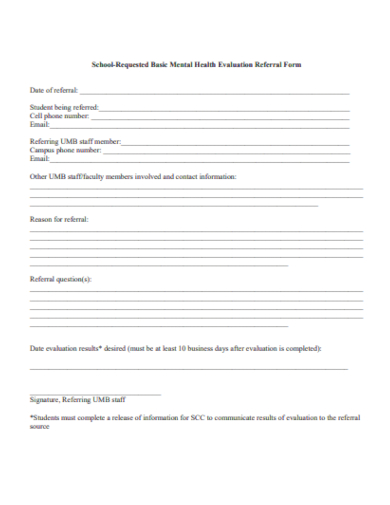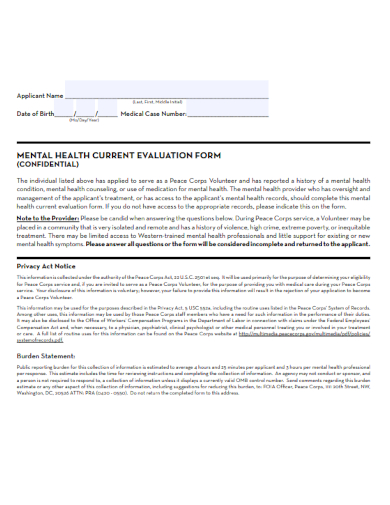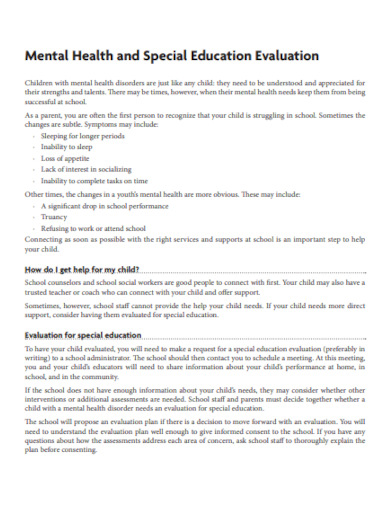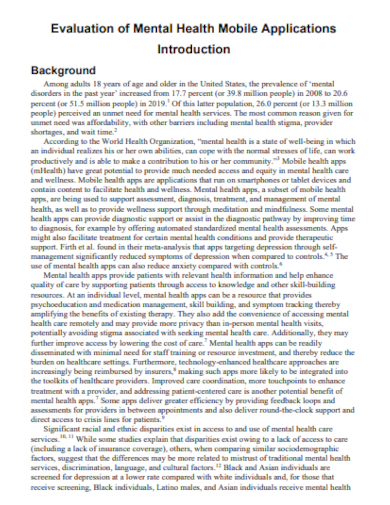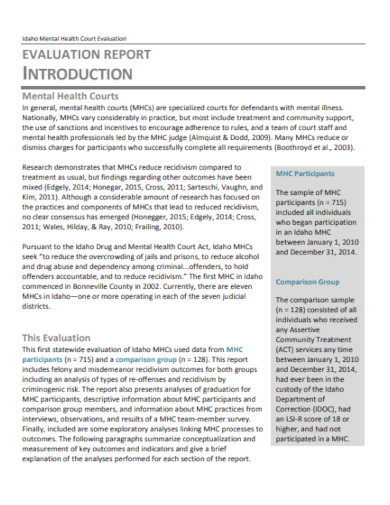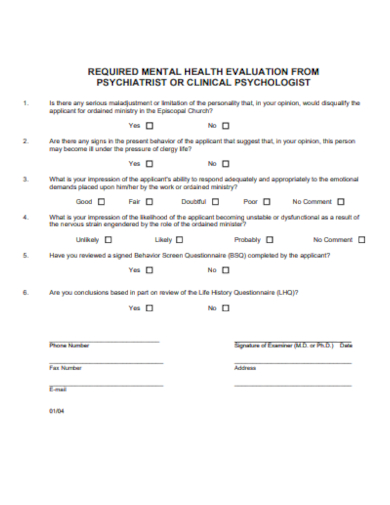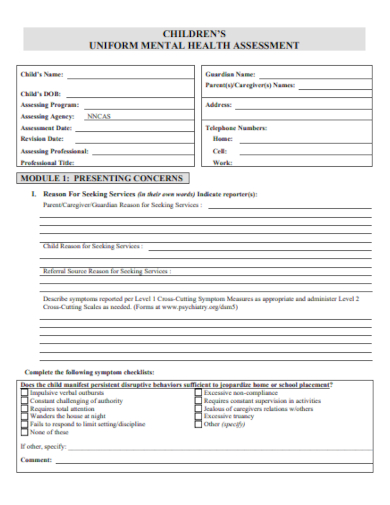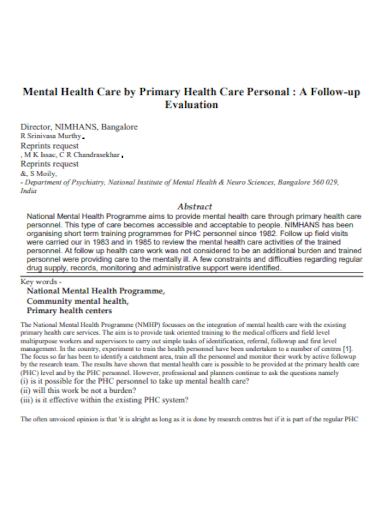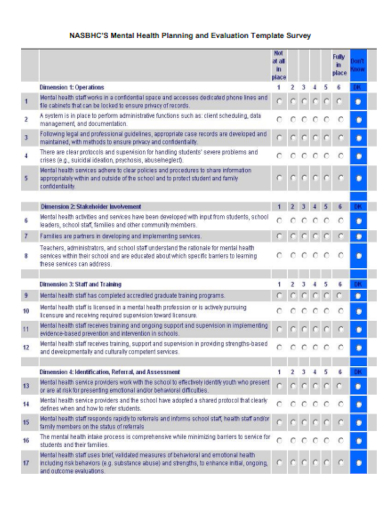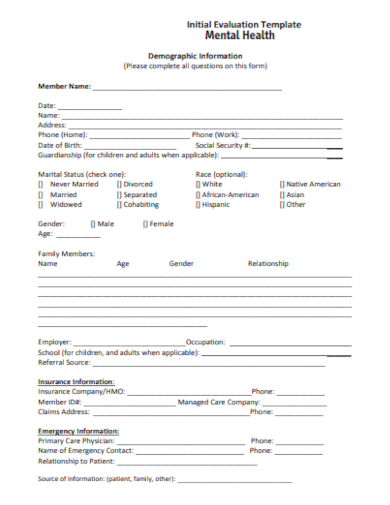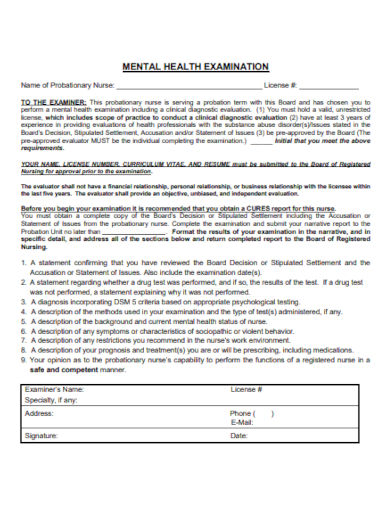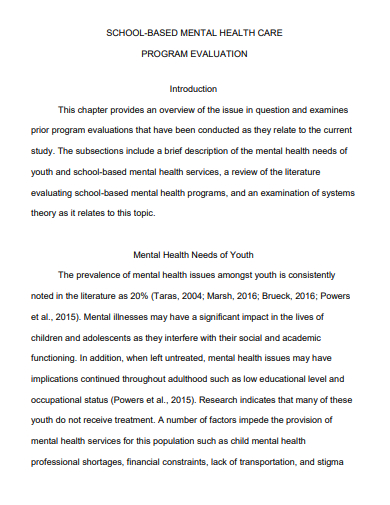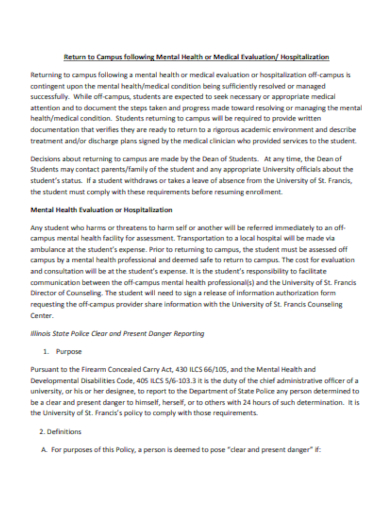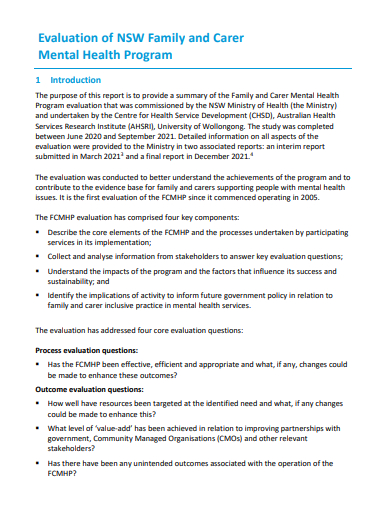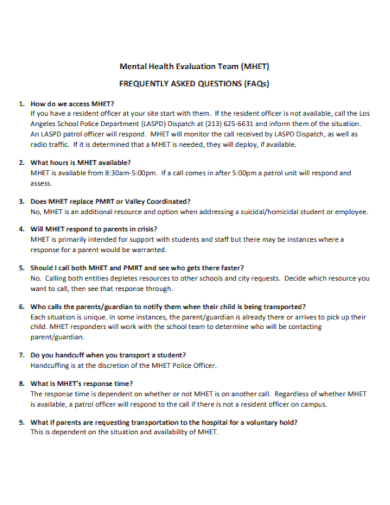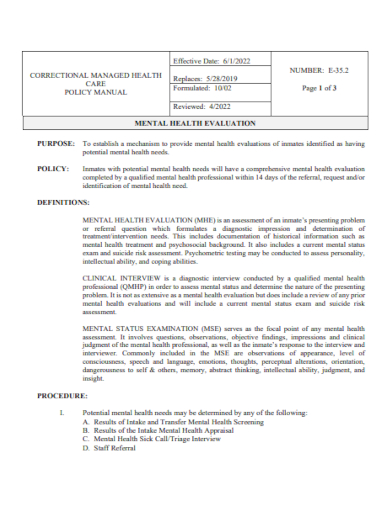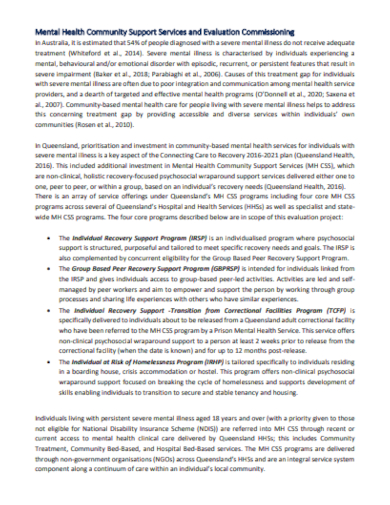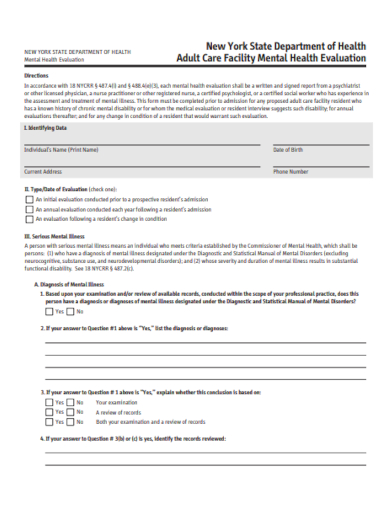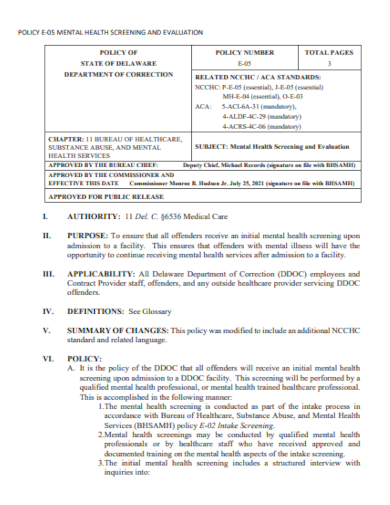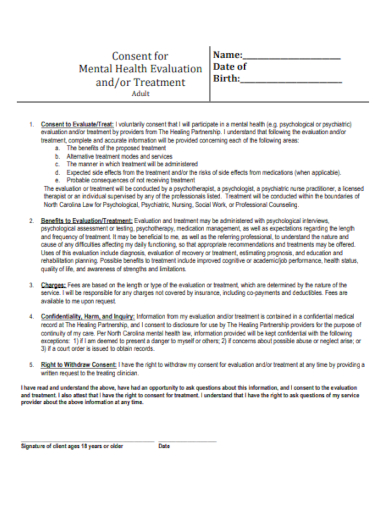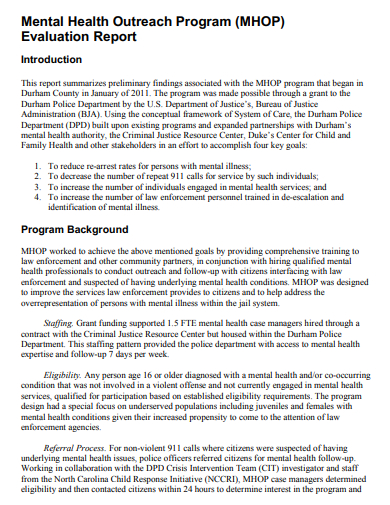There are types of health institutions that offer comprehensive mental health evaluation and assessment for all kinds of patients. Most people experience mental illness during their lifetime, however, they chose not to get a treatment plan for their condition. The common reason for this is their mental health conditions are undiagnosed. Therefore, their families and friends find it difficult to determine whether they are just moody or a more serious problem being experienced by their loved ones.
20+ Mental Health Evaluation Samples
1. Mental Health Evaluation Form
2. Sample Mental Health Evaluation
3. Mental Health Education Evaluation
4. Mental Health Mobile Application Evaluation
5. Mental Health Court Evaluation Report
6. Psychiatric Mental Health Evaluation
7. Child Mental Health Assessment
8. Personal Mental Health Evaluation
9. Mental Health Evaluation Survey
10. Initial Mental Health Evaluation
11. Mental Health Exam Evaluation
12. School Mental Health Program Evaluation
13. Mental Health Medical Evaluation
14. Family Mental Health Evaluation
15. Mental Health Evaluation Team FAQ
16. Mental Health Interview Evaluation
17. Mental Health Support Evaluation
18. Adult Care Facility Mental Health Evaluation
19. Mental Health Evaluation Policy
20. Mental Health Treatment Evaluation
21. Mental Health Program Evaluation Report
What is a Mental Health Evaluation?
Mental health evaluation or assessment is a procedure that a patient undergoes to identify any mental disorders and help them connect with mental health providers who can give them the care they need. Medical practitioners also use client treatment plans, mental health discharge summaries, client progress notes, mental health assessment plans, and health care action plan templates to create an effective strategic action plan that patients can take to improve their health conditions.
How to Create a Mental Health Evaluation
Medical professionals such as psychiatrists, psychologists, or family doctors perform mental health evaluations or also referred to as psychological assessments. It involves components such as verbally responding to questions, taking a physical examination, and completing assessment surveys or assessments. A mental health assessment contributes to the mental health history of a patient along with their medical history and social history.
Step 1: Provide the Background Information of the Patient
Start by gathering relevant background information from your patient like their age, gender, and ethnicity. Then keep a record of the patient’s medical history, mental health history, and cultural factors in your assessment like their immigration religion, and sexual orientation.
Step 2: Write Your Assessment
Include a narrative note or summary of your findings and how the elements you have recorded contributed to your patient’s current health condition. Write a description of the patient’s current symptoms and behavior then assess their psychosocial history. Make sure that they have completed their mental status exam and medical necessity criteria.
Step 3: Explain Your Diagnosis and Proposed Treatment Plan
You can categorize the psychiatric diagnoses of your patients by utilizing the Diagnostic and Statistical Manual of Mental Disorders. Then recommend a mental health treatment plan that is most appropriate for your patient based on your narrative assessment or summary.
Step 4: Make Sure That The Patient Understands Your Treatment Plan
Conclude your evaluation by providing a statement about your patient’s understanding of their treatment plan and its corresponding goals. This section will show that your patient is aware of the treatment’s proceedings and is willing to continue and work with it.
FAQs
What are the mental disorders that can be diagnosed with an evaluation?
The mental disorders that can be diagnosed with a mental health evaluation are depression and mood disorders, anxiety disorders, eating disorders, ADHD, PTSD, substance abuse, bipolar disorder, and psychotic disorders.
What should be considered when evaluating a mental health condition?
The factors that should be considered during mental health evaluation are the mental health symptoms, troubling thoughts and behaviors, events that could make the symptoms worse, how long the symptoms last, and how often it occurs.
What happens during a mental health evaluation?
During a mental health evaluation, an interview will occur between the patient and the doctor or therapist. The doctor might use a combination of interview questions and written questionnaires as well as physical examination and basic laboratory tests.
Mental health evaluations are procedures in which professionals can get an overview of an individual’s mental health condition with the use of written and verbal questions, physical examinations, and lab tests. The evaluation or assessment will help the mental healthcare provider to understand the patient’s needs and determine the most appropriate treatment or healthcare plan for their mental health condition.
Related Posts
FREE 7+ Sample Psychological Evaluation Templates in PDF
FREE 71+ Questionnaire Samples in PDF MS Word | Pages
FREE 9+ Medical Evaluation Form Samples & Templates in PDF ...
FREE 10+ Biopsychosocial Assessment Form Samples [ Adolescent ...
FREE 10+ Sample Health Risk Assessments in PDF MS Word
FREE 8+ Sample Health and Safety Risk Assessment Templates in ...
FREE 9+ Mental Health Progress Note Samples [ Policy, Planner ...
FREE 8+ Neuropsychological Evaluation Report Samples ...
FREE 6+ Sample Heuristic Evaluations in PDF MS Word
FREE 9+ Nursing Assessment Sample Forms in MS Word PDF
FREE 10+ Sample Health Plan Templates in PDF MS Word
FREE 10+ Mental Health Discharge Summary Samples [ Treatment ...
FREE 10+ Summative Assessment Samples in PDF MS Word
FREE 10+ Family Assessment Samples [ Health, Needs, Child ]
FREE 8+ Evaluation Plan Templates in MS Word PDF

